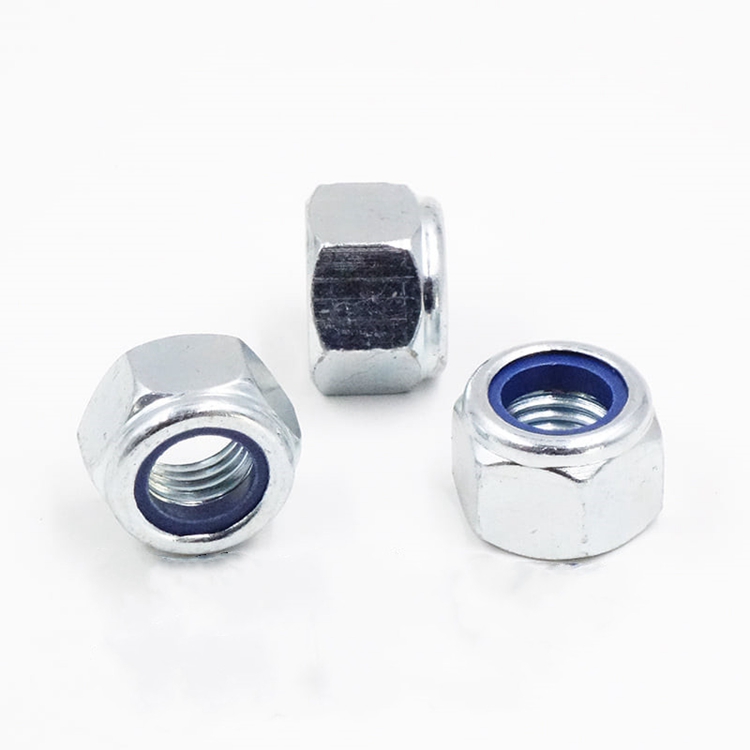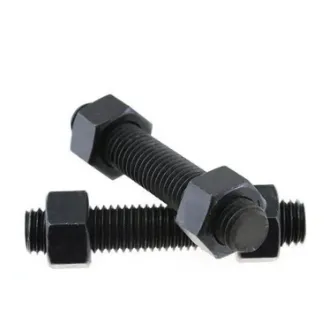centerpoint bolts
شوبات . 11, 2025 15:34 Back to list
centerpoint bolts
Centerpoint bolts are an essential component in various industries where precision and stability are critical. They are specifically designed to be the focal point in assemblies that require exact alignment and distribution of forces. As someone with extensive experience in this field, I'm here to delve into the intrinsic value of centerpoint bolts, underlining their applications, benefits, and selection criteria to ensure optimal performance.
The trustworthiness of centerpoint bolts is further reinforced by the use of advanced manufacturing techniques. Precision manufacturing processes, such as CNC machining and thread rolling, ensure that bolts exhibit consistent geometrical properties and superior surface finishes. Quality assurance through non-destructive testing methods, like ultrasound or x-ray inspection, guarantees that each bolt is free of internal defects that could compromise its integrity in critical applications. Customers and professionals seeking centerpoint bolts should also consider the supplier's reputation and track record. Vendors with a established history of reliability and customer satisfaction are more likely to deliver consistent quality and timely service. Investing in centerpoint bolts from reputable manufacturers not only ensures product performance but also aligns with the best practices in sourcing and procurement strategies. Additionally, incorporating centerpoint bolts into a preventative maintenance program can extend the lifecycle of the entire assembly. Regular inspection, torque checking, and the replacement of worn bolts can prevent catastrophic failures and enhance operational efficiencies. This proactive approach, rooted in real-world experience, underscores the importance of treating centerpoint bolts as a critical investment rather than a mere component. In conclusion, centerpoint bolts are a cornerstone of precision engineering, influencing the performance and safety of countless applications. Their strategic selection, underpinned by a deep understanding of material properties, threading dynamics, and adherence to industry standards, exemplifies the expertise and authority necessary in this field. By choosing high-quality centerpoint bolts and maintaining stringent quality assurance practices, industries can achieve greater reliability, efficiency, and trust in their mechanical systems.


The trustworthiness of centerpoint bolts is further reinforced by the use of advanced manufacturing techniques. Precision manufacturing processes, such as CNC machining and thread rolling, ensure that bolts exhibit consistent geometrical properties and superior surface finishes. Quality assurance through non-destructive testing methods, like ultrasound or x-ray inspection, guarantees that each bolt is free of internal defects that could compromise its integrity in critical applications. Customers and professionals seeking centerpoint bolts should also consider the supplier's reputation and track record. Vendors with a established history of reliability and customer satisfaction are more likely to deliver consistent quality and timely service. Investing in centerpoint bolts from reputable manufacturers not only ensures product performance but also aligns with the best practices in sourcing and procurement strategies. Additionally, incorporating centerpoint bolts into a preventative maintenance program can extend the lifecycle of the entire assembly. Regular inspection, torque checking, and the replacement of worn bolts can prevent catastrophic failures and enhance operational efficiencies. This proactive approach, rooted in real-world experience, underscores the importance of treating centerpoint bolts as a critical investment rather than a mere component. In conclusion, centerpoint bolts are a cornerstone of precision engineering, influencing the performance and safety of countless applications. Their strategic selection, underpinned by a deep understanding of material properties, threading dynamics, and adherence to industry standards, exemplifies the expertise and authority necessary in this field. By choosing high-quality centerpoint bolts and maintaining stringent quality assurance practices, industries can achieve greater reliability, efficiency, and trust in their mechanical systems.
Next:
Latest news
-
Wire Bolts Company | Premium Industrial Fasteners
NewsAug.03,2025
-
Top Wire Bolts Suppliers | AI-Optimized Fast Delivery
NewsAug.02,2025
-
Top Metric Wood Screw Companies | Durable & Reliable
NewsAug.01,2025
-
Premium Lawn Mower Handle Bolts Supplier | Fast Delivery
NewsJul.31,2025
-
Premium Silver Screws Supplier | High-Conductivity Fasteners
NewsJul.31,2025
-
Silver Screws Supplier: High-Quality Fasteners for Various Industries
NewsJul.30,2025
